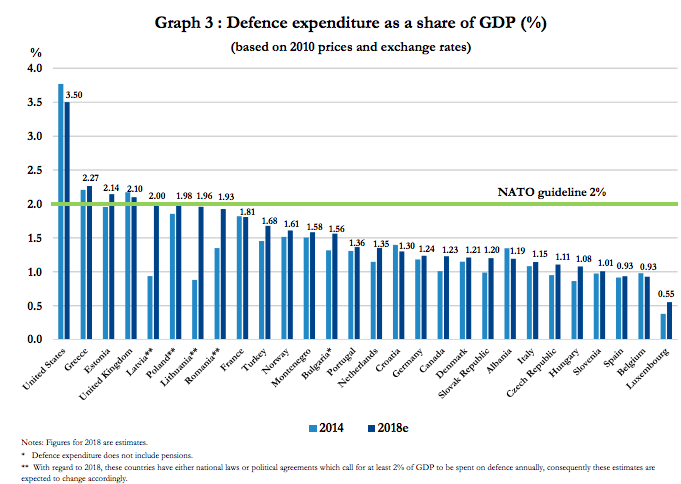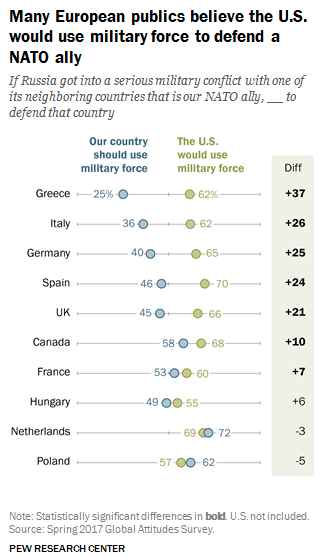Germany must spend much more to boost its military strike capabilities.
Anything else is a distraction designed to deflect attention away from Germany’s woefully inadequate defense investment. And that includes German defense minister, Ursula von der Leyen’s announcement on Thursday that the German army might allow non-German European Union citizens to apply for certain specialist roles.
Okay, and what else?
Look, I recognize that skilled specialists are vital to the effectiveness of any military. You can’t operate a nuclear submarine without nuclear engineers, you can’t plan airstrikes without intelligence officers, and you can’t sustain an army without logistical organizers. Germany has gaps in various military specialist fields and it must fill them. If that takes more EU recruits, so be it. Yet when it comes to Germany’s defense needs, the exigent need is not more people. The need is more equipment. Specifically, more equipment that would complement defensive and counter-offensive operations against a Russian invasion of eastern or central Europe. This announcement isn’t that.
In reality, it’s a political effort to show seriousness about one military deficiency in order to distract away from other much greater military deficiencies. Starved of investment for many years, Germany’s ability to “fight tonight,” or fight effectively on short notice has been eviscerated. Towards the end of last year, only 39 percent of newly deployed German military materiel such as tanks and fighter jets were ready for use. A German parliamentary report in February also found major failings in military leadership, significant shortfalls in senior noncommissioned officer ranks (the lubricant of any military), and utterly inefficient bureaucracies. Oh, and the German military lack equipment ranging from body armor to spare parts. The report also found that earlier this year Germany had zero operational submarines and no long range airlift capacity. The icing on the cake? One armored unit had only 9 operational tanks out of the 48 tanks it is supposed to retain.
And Chancellor Angela Merkel leads the liberal world order? Give me a break. This is what happens when you spend just 1.2-1.3 percent of GDP on defense (instead of the NATO-prescribed 2 percent), and less than 15 percent of your defense budget on major equipment purchases (instead of the 20 percent target).

But as astonishing as this data is, things are actually worse than they look. Because Germany is supposed to be the heart of NATO’s defense-in-depth against a Russian attack on NATO states in the Baltics or Poland. But because Germany presently cannot counter Russian attacks on its periphery, it greatly weakens NATO at large.
The Russians know this. That’s why their propaganda machines work relentlessly to persuade the already near-pacifist German left and center-left to oppose NATO and more defense spending. The propagandists play to the lie that to spend more on defense is pointless and would only aggravate an otherwise tolerant Russian bear. But this is propaganda with a grand purpose. After all, Russian war planning towards NATO focuses on rapidly seizing territory and establishing forward strongholds. Russia hopes that if it can win these early battle victories, it can then offer NATO a binary choice between a seemingly reasonable cease fire and or a bloody fight to retake the lost NATO territory. This, Putin hopes, could split NATO between those willing to honor their treaty commitments and continue the fight, and appeasers. Sadly, Putin may be onto something. Note the Pew Research Center poll below which indicates that Germans are unlikely to support use of force in defense of an ally.

So what should be done to correct these problems?
Well, for one, the U.S. should keep up the public pressure on Germany to spend more on defense more quickly. President Trump should also keep pushing Chancellor Merkel to end her support for Vladimir Putin’s Nord Stream II gas pipeline. Alongside U.S. allies in Britain, France, and Poland, this pressure should seek to alter the German government’s current plan to reach 1.5 percent of GDP spending on defense by 2024. Instead, Germany should reach 2 percent of GDP spending on defense by 2022. That bolder course would also give the German armed forces the money they need to make major capital equipment purchases on a short timeline. If Germany refuses to commit to this timetable by the conclusion of next summer’s NATO summit, the U.S. should relocate the majority of its military forces in Germany to Poland.
